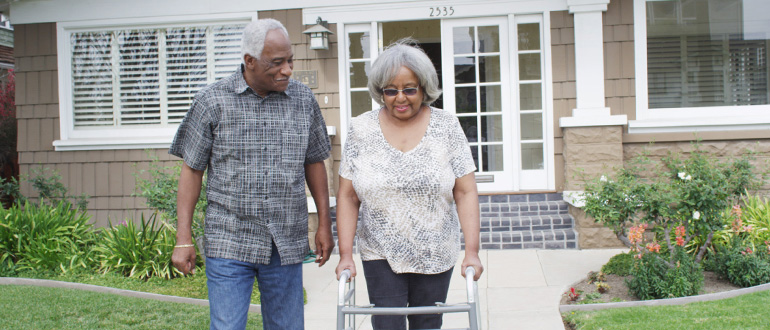Cognitive decline in elderly people: Early warning signs

No one wants to lose their memory. It’s a terrifying prospect.
And cognitive decline isn’t just about losing your memory; it’s about not being able to think like you used to. For example, you might be confused by abstract concepts, have trouble with decision-making, or not understand friends’ and families’ conversations.
Cognitive decline can make someone feel like they’ve lost themselves. It makes sense that people deny that the early warning signs are happening. But they shouldn’t.
What early diagnosis can do
Early diagnosis can help those experiencing cognitive decline to access treatments immediately, which could slow progression. It also allows the person affected by cognitive decline to make their own decisions about how their lives will unfold as their disease progresses.
Early warning signs
Here are some early warning signs of cognitive decline.
- Repeating yourself
When you begin to experience cognitive decline, the repetitions are obvious to others around you. You might tell the same joke to your grandchildren multiple times during the same afternoon. Or you may say something, leave the room, and come back to repeat it.
- The familiar becomes unfamiliar
Something you may have done a thousand times before confuses you. Your routine activities lose the automatic element they may have once had. For example, you might be baking the cookies your children loved growing up and find that you have to consult a recipe you used to know by heart.
- Losing time
You might forget important dates or appointments or find that early morning slipped quickly away into evening.
Don’t panic
All these early warning signs can happen to people every now and again. You might find that memory issues come and go—which could be because you are stressed out or experiencing depression or hormone fluctuations (all of which can affect your thinking abilities).
When you experience multiple symptoms of cognitive decline frequently, that’s when you should be concerned.
It’s also possible that you won’t be fully aware that you’re starting to have trouble. If a family member approaches you and expresses worry about your memory, understand that they have your best interests at heart, and consult your doctor.
If you have concerns about a family member’s cognitive decline, don’t wait to bring it up. It’s a difficult conversation, but it could have a positive outcome. Many people worry memory problems could be indicative of Alzheimer’s disease, but that’s not the only cause of cognitive issues.
For example, it could be that your mother’s new medication is interacting poorly with a prescription she’s been taking for years. Or, it’s possible that your brother is having some trouble because he’s been depressed and isolated. Those kinds of issues can be treated and reversed.
Health Care Access Now (HCAN)’s Community Health Workers (CHWs) work with elderly clients to help them plan and access resources if they are experiencing symptoms of cognitive decline. Though many people do not want to face the possibility that their thinking abilities may be changing, taking a proactive approach to cognitive decline yields the best outcomes.






